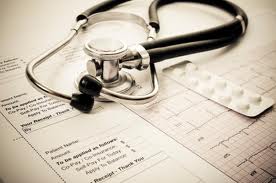Medical Payments on most car insurance policies covers reasonable and necessary expenses for medical, surgical, dental and chiropractic treatment, hospital, ambulance, x-ray and professional nursing services caused by an accident. It also covers prosthetic devices and funeral services. The coverage applies for these expenses without regard to fault. However, it pays only for those expenses incurred for services rendered within three years from the date of the accident.
Medical Payments is a very broad coverage. It covers you, a relative, and any other person occupying your car while you or a relative are using your car or if anyone else is using it with your permission.
It also covers you and family members for injury in any other car not owned by you as long as the car is used with permission. (This means there is no coverage if the non-owned car is a stolen vehicle…no coverage for auto thieves!) So, if you are a passenger in another person’s car and injured in an accident, you can go to your own car insurance policy and have your medical bills paid from your Medical Payments coverage.
Medical Payments will also pay medical and funeral expenses if you are a pedestrian hit by a vehicle. This can be especially important if you’re struck by a hit-and-run driver. Even if the driver of the car takes off, you can get your medical bills paid up to the limit of the coverage.
The most the policy will pay for each insured person who is injured in an accident is the limit of liability shown in the declarations of the policy. That’s usually an amount between $1,000 and $10,000. Higher limits of liability may be available, so ask your independent agent for quotes.
Medical payments may also pay in place of other insurance when exclusions apply. For example, in most states Mandatory Personal Injury Protection (PIP) covers you and your relatives and passengers in your car for medical bills if you are involved in an accident. This coverage is also called no-fault, because, like Medical Payments coverage, no-fault pays regardless of who is at fault.
The problem arises when you look at the exclusions under the car insurance policy’s Personal Injury Protection (PIP). One of the exclusions under PIP states that it will not pay for any person if they are operating a motor vehicle while intoxicated or impaired by drugs. Medical payments coverage does not have this exclusion, so if you are unfortunate enough to be in an accident and then convicted of driving while intoxicated or driving while impaired or on drugs, you can resort to your Medical Payments coverage to pay your medical bills at least up to the limit of liability.
The only time Medical Payments may not respond is if your car is used to carry people or property for a fee, if you are using your car as a residence, or if you are in the auto business and covered by workers’ compensation insurance.
Medical Payments is one of many coverages you get on your Personal Auto insurance policy, usually in amounts of $1,000, $5,000 or $10,000. For your peace of mind, talk to The Andrew Agency about this relatively inexpensive, comprehensive coverage.











